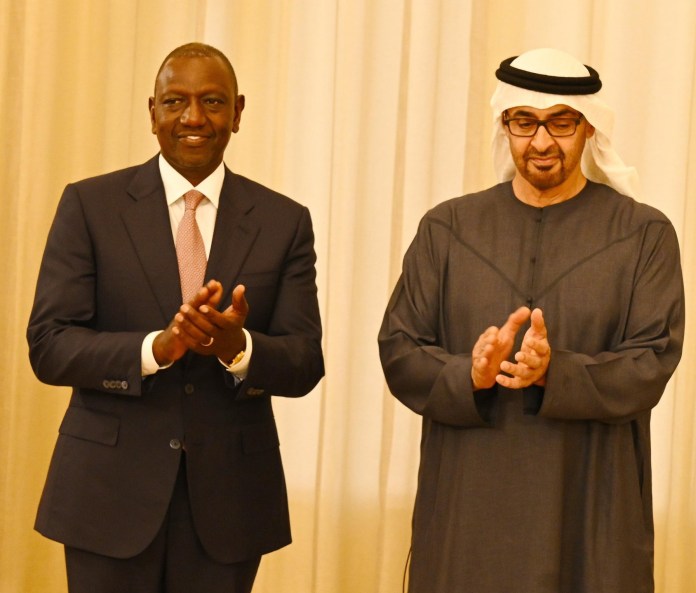KHARTOUM, Sudan – Sudan’s military government has accused the United Arab Emirates of funneling weapons to rival paramilitary forces through Kenya, an explosive claim that escalates a long-simmering proxy war and threatens to drag East Africa deeper into the nation’s devastating conflict.
The accusation, Sudan’s most direct public condemnation of the UAE to date, suggests a significant expansion of the supply routes that have sustained the brutal 16-month civil war. The conflict between the Sudanese Armed Forces (SAF) and the paramilitary Rapid Support Forces (RSF) has killed tens of thousands, displaced millions, and pushed the country to the brink of famine.
The war, which erupted in April 2023 between army chief General Abdel Fattah al-Burhan and his former deputy, RSF commander Mohamed Hamdan Dagalo, known as “Hemedti,” has been fueled by foreign interference. The alleged opening of a Kenyan channel, however, marks a perilous new phase.
A trail of evidence
Sudanese officials claim the charge is rooted in evidence found in January, when SAF troops captured RSF weapon caches in Khartoum that bore Kenyan army markings. They allege these arms are part of a sophisticated supply chain originating in the UAE, a long-accused backer of the RSF.
“The UAE has been arming the RSF through Chad and Libya, but this new Kenyan route is a dangerous escalation,” a senior Sudanese military source told AFP on condition of anonymity due to the sensitivity of the matter.
Recent diplomatic moves have inflamed tensions. In February, Kenya’s capital, Nairobi, hosted RSF leaders, where they signed a charter to establish a parallel civilian administration, a move Khartoum condemned as a direct assault on its sovereignty.
Sudan’s government also pointed to a now-deleted social media post from June 16 by Kenyan government spokesman Isaac Mwaura, which stated: “Egypt and Iran back SAF; UAE backs RSF.” Khartoum cites this as an admission of Kenya’s complicity in Abu Dhabi’s designs.
For years, international observers have warned of the UAE’s deep involvement in Sudan. A report by the UN Panel of Experts on Sudan, referenced in January 2024, detailed numerous cargo flights from the UAE to an airport in Amdjarass, Chad, near the Sudanese border, believed to be delivering military support to the RSF.
A lucrative ‘gold-for-guns’ trade bankrolls this alleged military backing. The RSF controls many of Sudan’s gold mines, particularly in the war-ravaged Darfur region. According to analysts citing UN trade data, the UAE has been the primary destination for Sudanese gold, with smuggled quantities believed to far exceed official figures.
This revenue stream provides the RSF with the financial muscle to purchase advanced weaponry. A recent Amnesty International investigation identified the RSF using sophisticated arms, including Chinese-made guided bombs and heavy artillery systems consistent with the UAE’s military inventory.
By backing the RSF, which evolved from the notorious Janjaweed militias, Abu Dhabi aims to secure influence over Sudan’s strategic Red Sea coastline and vast mineral wealth, analysts say, effectively sidelining the pro-democracy movement that toppled dictator Omar al-Bashir in 2019.
Shifting alliances
Kenya’s alleged role as a logistical hub follows a state visit by President William Ruto to Abu Dhabi in early 2025, which culminated in major trade and investment agreements. Analysts suggest this has pulled Nairobi closer into the UAE’s geopolitical orbit.
While Kenya officially positions itself as a neutral mediator within the Intergovernmental Authority on Development (IGAD) bloc, its hosting of RSF leadership has been widely interpreted as a tilt away from Khartoum. In response, Sudan has reportedly banned some Kenyan imports, escalating diplomatic and economic tensions.
Despite mounting evidence of foreign interference, the international response has remained fractured. UN Secretary-General António Guterres has repeatedly condemned the flow of arms “fueling the war in Sudan” but has refrained from naming specific countries.
In Washington, a bipartisan group of lawmakers, including Representative Sara Jacobs and Senator Marco Rubio, has urged the Biden administration to sanction entities in the UAE linked to the RSF.
Sudan also attempted to seek legal recourse by filing a case at the International Court of Justice (ICJ), accusing the UAE of complicity in acts of genocide allegedly committed by the RSF against the Masalit ethnic group in Darfur. The court dismissed the case on jurisdictional grounds, but the move highlighted Khartoum’s desperation to hold foreign backers accountable.
As the war grinds on, Sudan’s suffering deepens, its future held hostage by a conflict now undeniably international in scope and devastating in its human cost.


